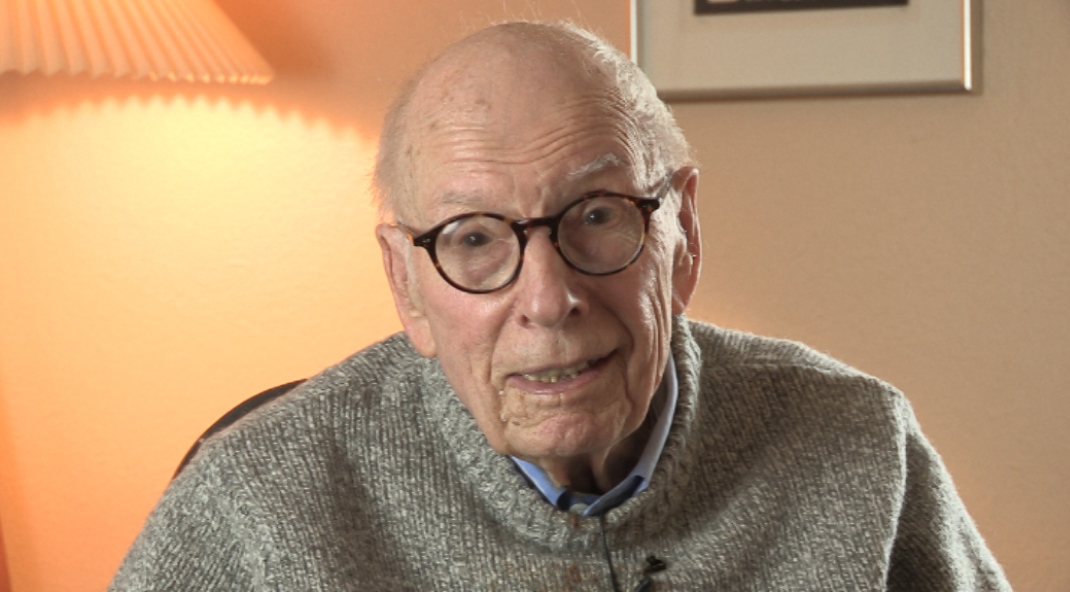NEXT STORY

Is my kind of biology ‘dead wood’?
RELATED STORIES

NEXT STORY

Is my kind of biology ‘dead wood’?
RELATED STORIES


|
Views | Duration | |
|---|---|---|---|
| 51. Notable scientist friends | 71 | 03:42 | |
| 52. A memorable meal | 58 | 03:08 | |
| 53. The brilliant JBS Haldane | 271 | 01:15 | |
| 54. Discovery of cyclic AMP creates a stir | 47 | 04:10 | |
| 55. Progress in experimental biology | 24 | 03:36 | |
| 56. Is my kind of biology ‘dead wood’? | 49 | 02:24 | |
| 57. If not slime molds, then what? | 35 | 01:15 | |
| 58. Natural selection in small organisms | 28 | 02:00 | |
| 59. What’s special about slime molds? | 44 | 01:48 |

[Q] It's all so different what we see in television, the way biological experiments are done now. Just what was it all like, you know, in your…
Of course, it seemed like the latest, hottest thing. And one doesn't think of it as not knowing what was coming next. And the speed with which new ways of doing things came was fantastic. In fact, I often wonder whether or not the progress in experimental biology can't be to some extent measured in terms of the techniques, the machinery. The electron microscope was a big leap forward and there are many others, perhaps not quite as big a boom as that had, but pretty big. And I mean, there are things like, techniques. Techniques, for instance, of labelling proteins with a fluorescent label. So what we could do, and did, and that is we took cells which are aggregated and then put them under one of these fantastic microscopes which would look for the fluorescence. And not only that, but it could actually look at different layers so that you can sort of make a dissection of where your fluorescence there is. And what we could do, and I mean, once the technique is there, it's easy to do. Once you were ready, you can put all these cells in a bunch or natural or artificial gathering.
And then, put in let's say, a spore protein, which is labelled. And then, you can actually see that these labelled spore proteins will go to one end or the other end, depending whether they're stalk or spore. And it's mind boggling. That was not even accessible to do in the old days.
[Q] What sort of person did you have to be in the old days to do experiments well?
Well, I think you just had to be reasonably intelligent, not drop everything, and it didn't require fancy skills. But now, when I did these experiments with fluorescent things, I always did it with someone who knew what he was doing. And that didn't have to occur when I first started out. I could do it even though I didn't know what I was doing.
John Tyler Bonner (born in 1920) is an emeritus professor in the Department of Ecology and Evolutionary Biology at Princeton University. He is a pioneer in the use of cellular slime molds to understand evolution and development and is one of the world's leading experts on cellular slime molds. He says that his prime interests are in evolution and development and that he uses the cellular slime molds as a tool to seek an understanding of those twin disciplines. He has written several books on developmental biology and evolution, many scientific papers, and has produced a number of works in biology. He has led the way in making Dictyostelium discoideum a model organism central to examining some of the major questions in experimental biology.
Title: Progress in experimental biology
Listeners: Christopher Sykes
Christopher Sykes is an independent documentary producer who has made a number of films about science and scientists for BBC TV, Channel Four, and PBS.
Tags: biological experiments, electron microscope, fluorescence
Duration: 3 minutes, 36 seconds
Date story recorded: February 2016
Date story went live: 14 September 2016